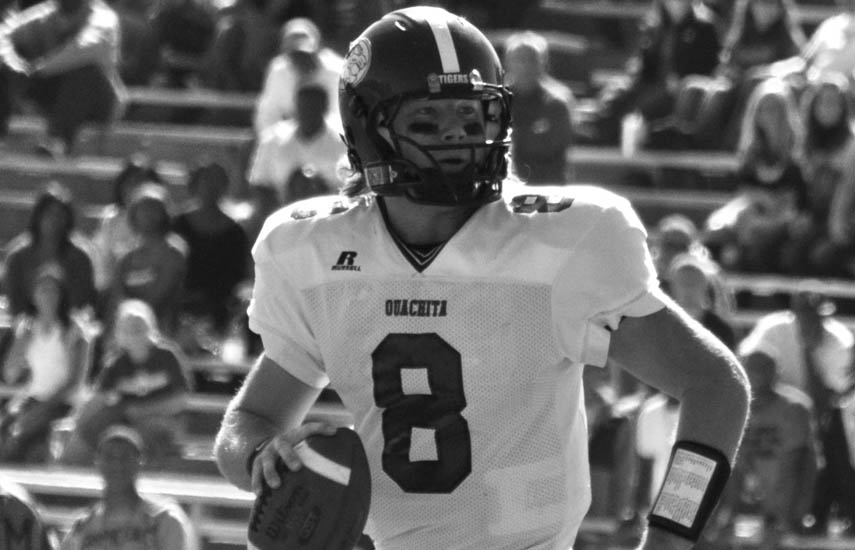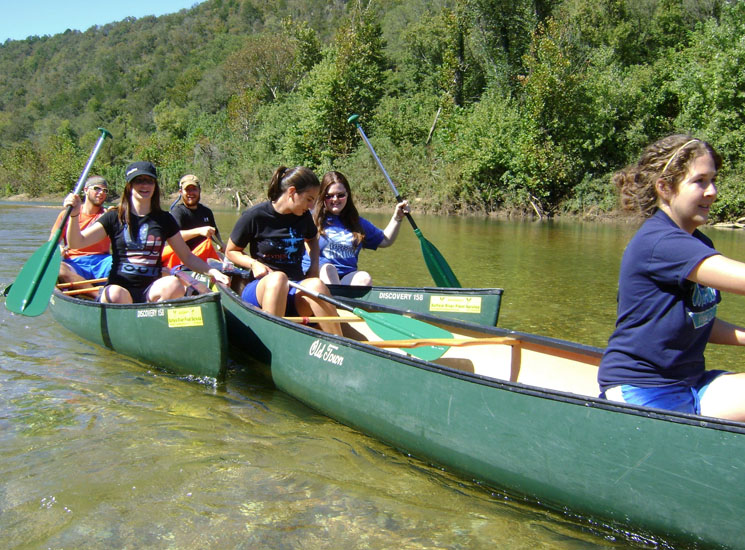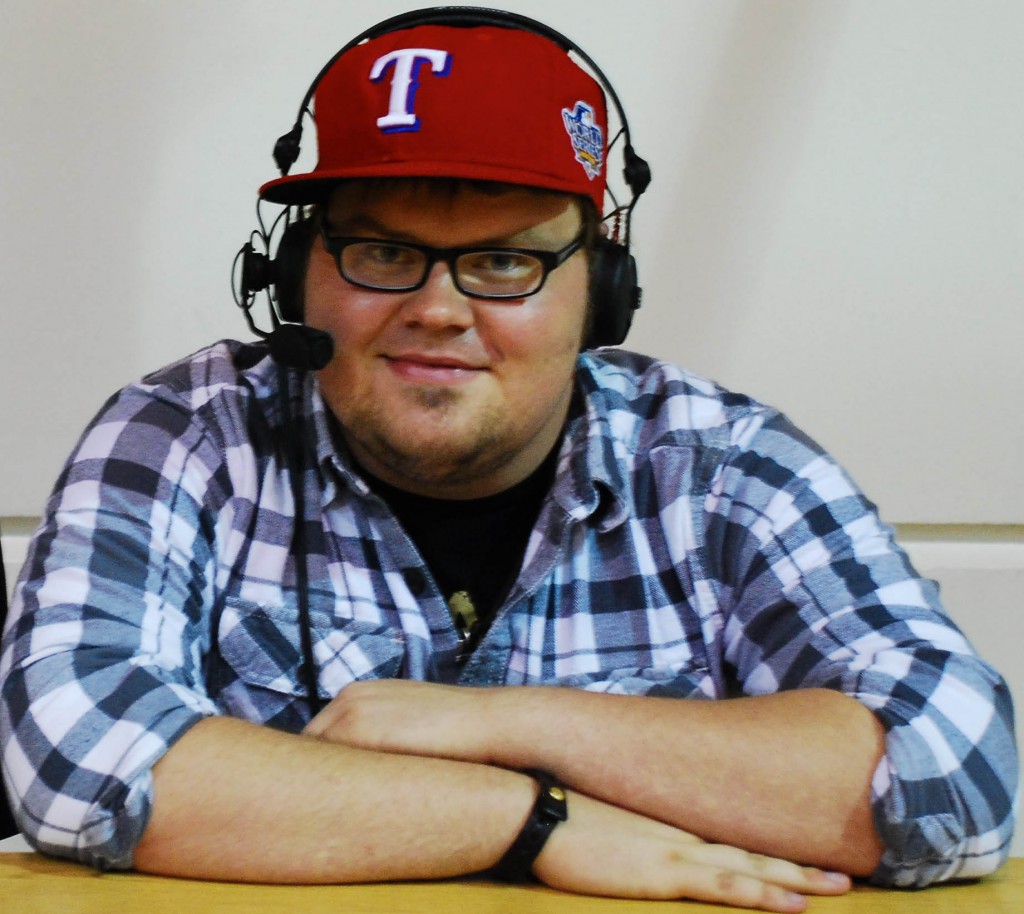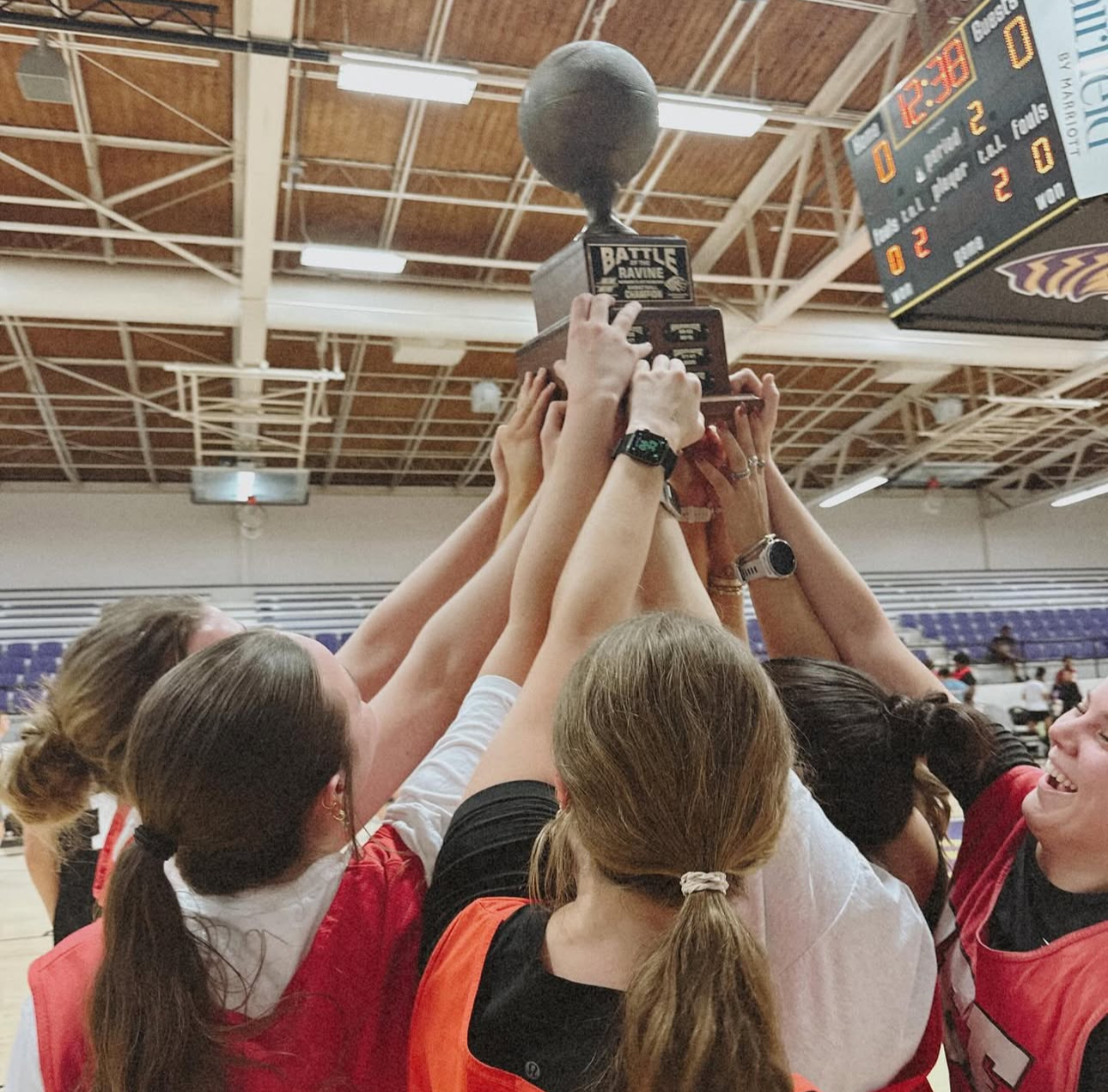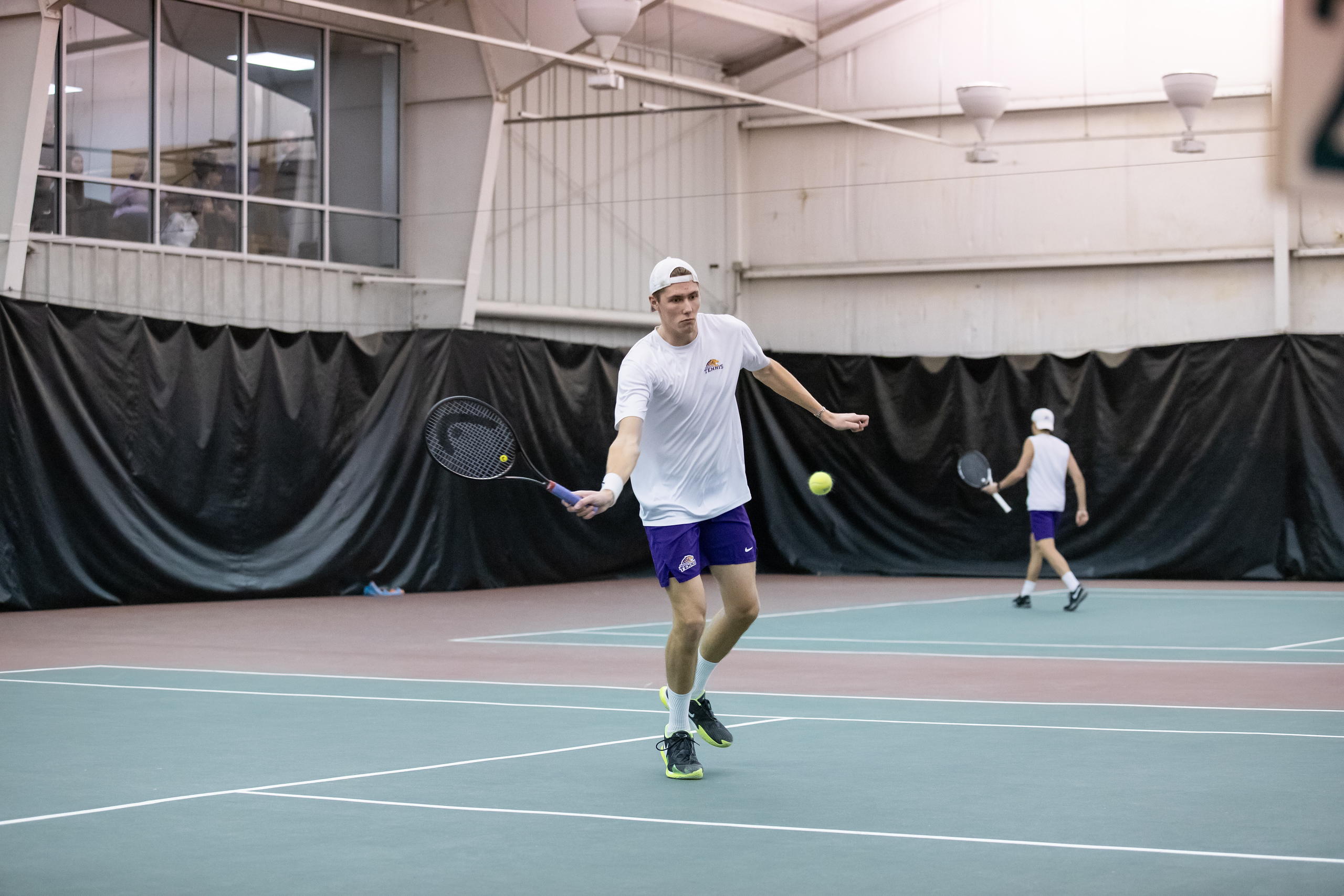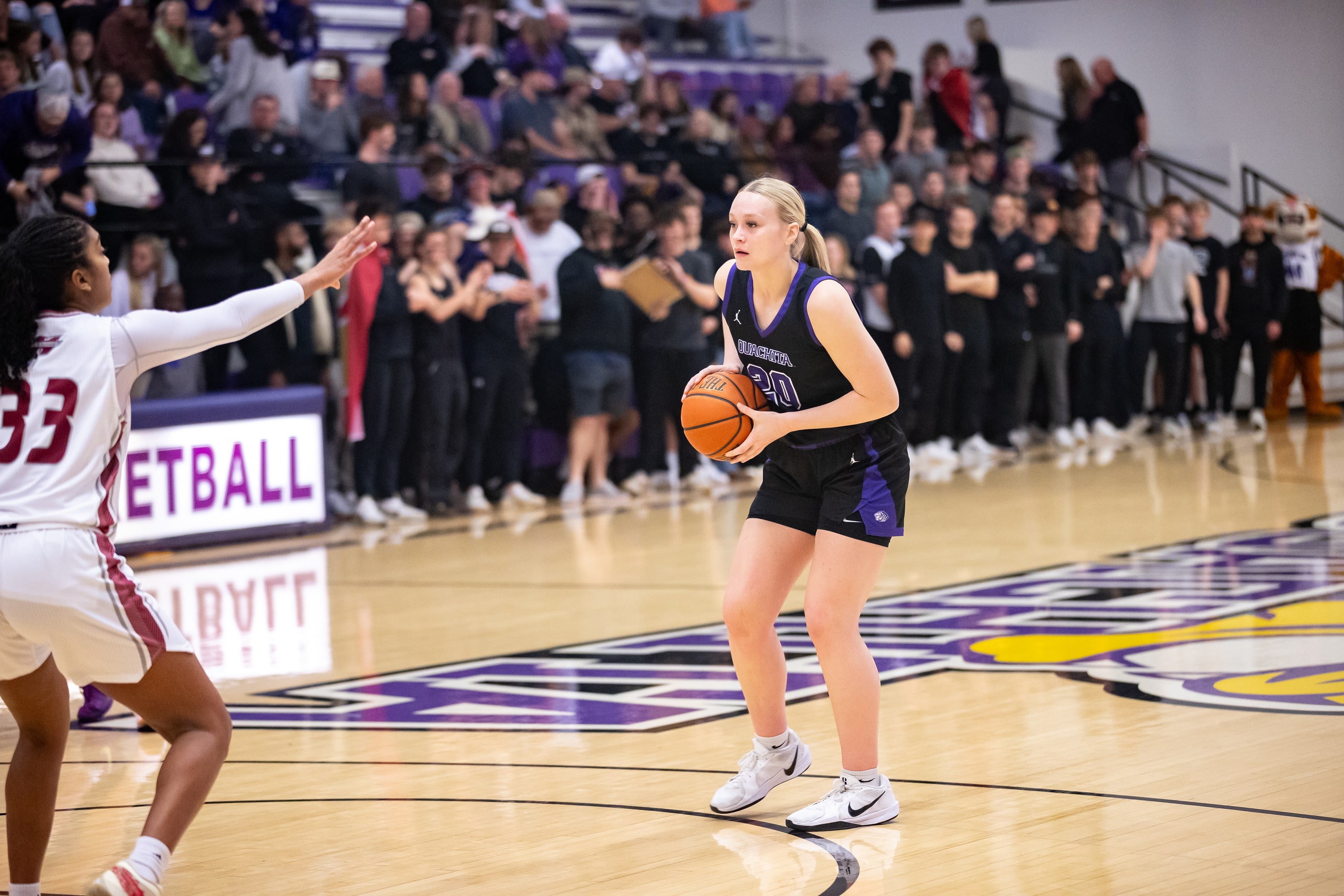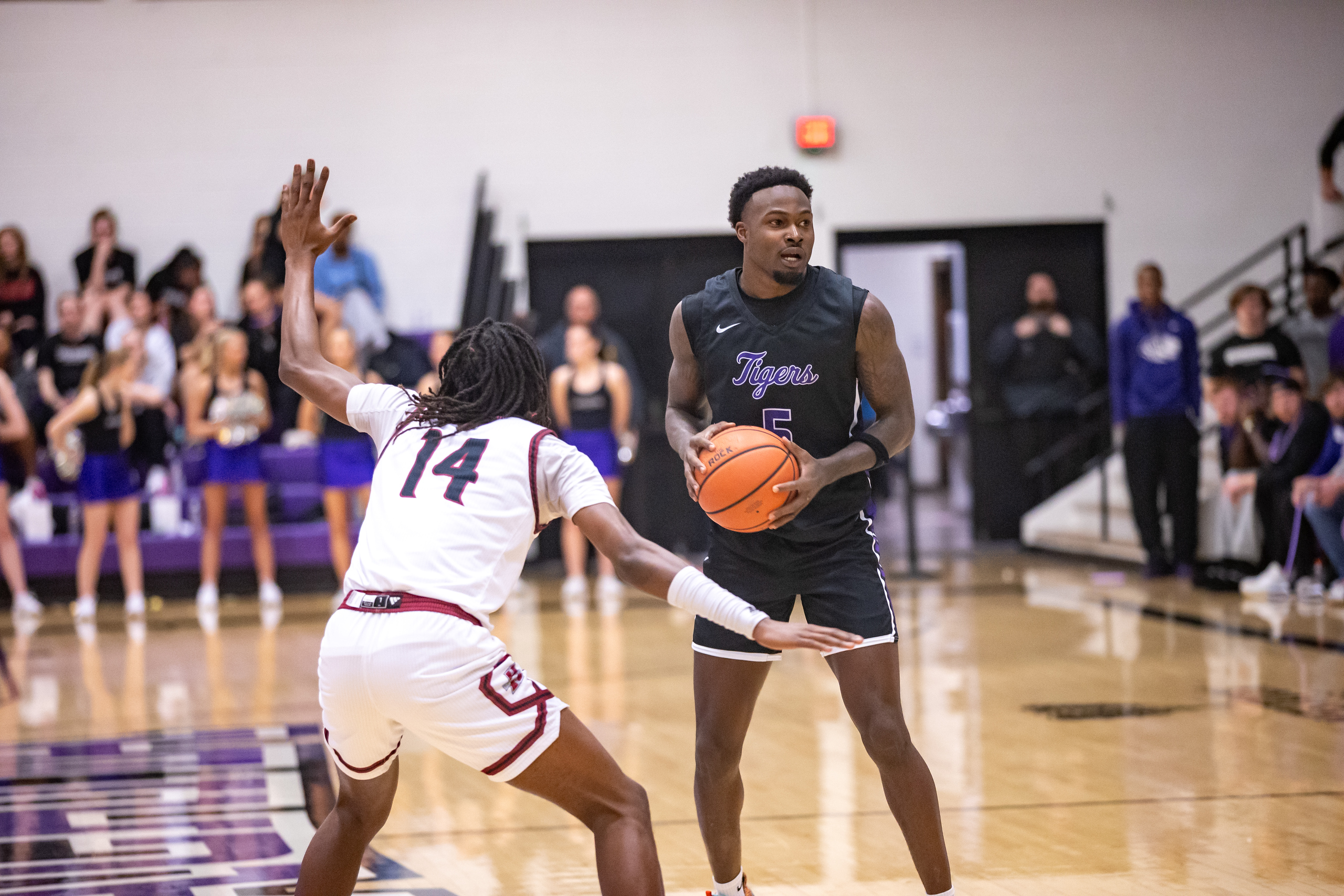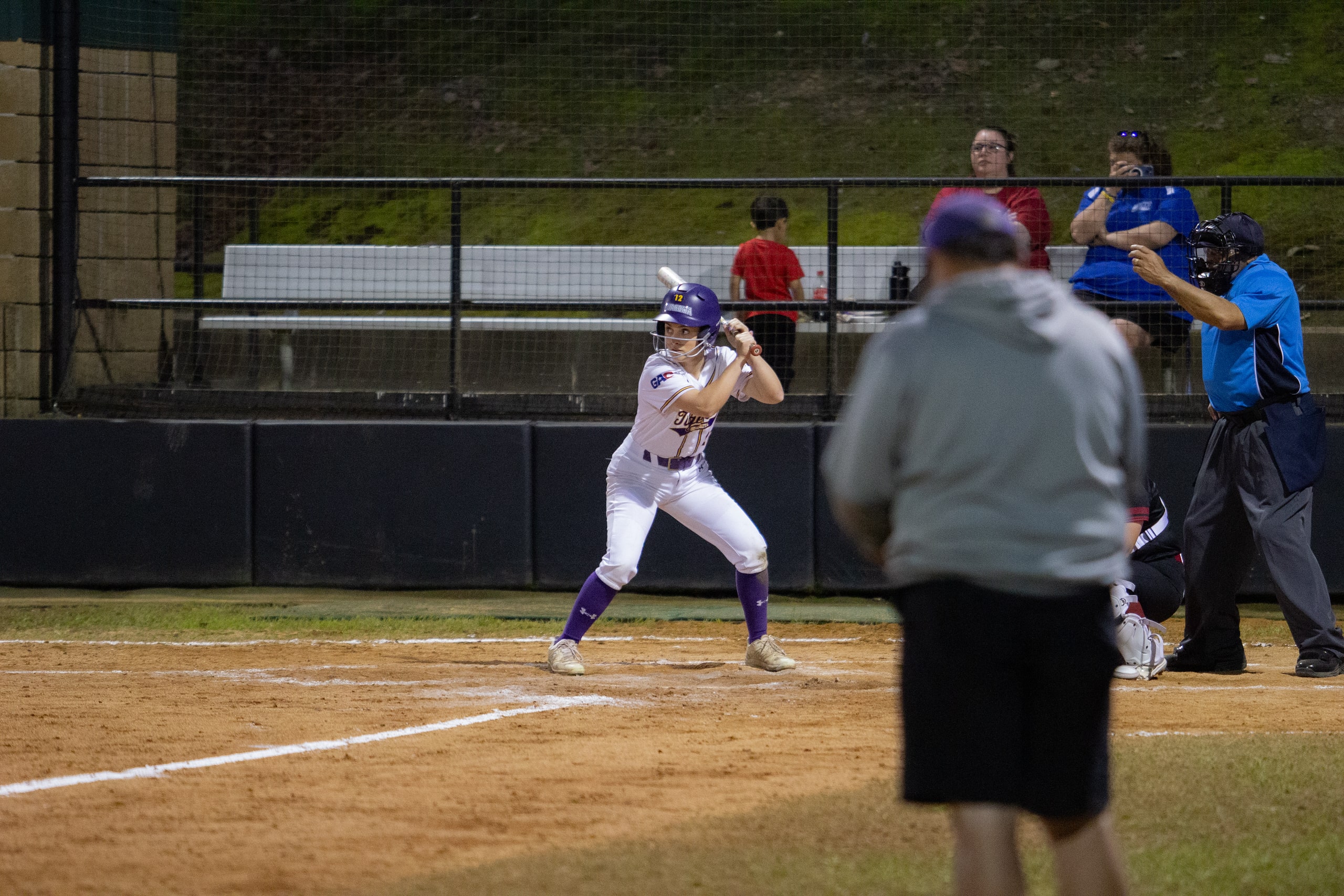When Eli Cranor was graduated from Ouachita, he was convinced he had played his last down when he took off the purple and gold for the last time. Instead of continuing his career on the field, he was ready to pursue his goal of becoming an English professor.
“I was pretty much done with football,” he said. “I’ve played football since I was seven; it has done a lot of things for me-gotten me an education. Football has been fun but I was ready to lay it down. I was planning on going on and continuing to grad school and focusing on English.”
Cranor had been contacted by a number of teams, from various Arena League teams to small professional leagues that he had never heard of and could not even recall the names of. But football was not done with him, and the unexpected continuance of his career would come from somewhere surprising. The Carlstad Crusaders of Sweden came calling.
“Honest to God, it was a Facebook message from this coach in Sweden,” Cranor said while laughing. “I thought it was a joke at first. I’d never heard of anything like it.”
Cranor and the coach would message back and forth, the coach putting Cranor in contact with other quarterbacks who had played in Europe. It was an unorthodox recruitment, but in the end Cranor was convinced.
“Spending six months in another country where it’s your job to play football-I just decided I couldn’t pass it up,” he said. “It sounded like too much fun.”
American football’s origin in Europe began during World War II when American soldiers would play football in Germany. It began to grow in popularity during the 1970s and now professional teams exist throughout the European countries from France to Serbia. Germany is considered the leading authority of American football in Europe with Austria close behind.
One would think American football in Sweden would not be held in very high regard. But according to Cranor, that was not the case in Carlstad, a smaller, rural city of about 60,000 that does not possess high ranking soccer or hockey teams. Cranor said it was similar to small-town football in America.
“It was pretty nice being in a smaller town where we were the feature team of the town,” he said.
On the Swedish league that Cranor’s team was in, a team could only field one American at a time. Not only does this keep European teams from importing entire teams of Americans, but having teams of native players helps to grow the sport throughout Europe. Most of the time teams will import quarterbacks for offense. On defense it depends what the team feels it is lacking most, according to Cranor.
Cranor was also asked to fill a role that was quite unprecedented. Not only was Cranor the quarterback of the Crusaders, he was also the offensive coordinator. Being both a player and essentially a coach on the field, Cranor handled more responsibility than he ever had previously in his playing career.
“I got to install the offense and call the plays from the field,” he said. “We had to come up with a special system where I could do formations, personnel packages and plays all from the field. That was really interesting and really daunting at first, but it worked out so well. It made me grow so much as a player.”
Although it was a lot of responsibility, Cranor found it to be an extremely effective way to run an offense.
“If you really put the time in and get to call the plays and execute them it’s a pretty deadly way to do it,” he said. “It takes out miscommunication between an offensive coordinator and a quarterback.”
While it worked out well for the Crusaders, he said it could have been a very different story.
“I don’t know if I would want to do it again because I feel like I got really lucky,” Cranor said. “The guys I had were veteran guys and really knowledgeable and spoke English so well. If I went to another country, it might be different.”
Cranor took a team that was already a powerhouse in Swedish football and added to their dominance with his arrival as quarterback, having been an accomplished quarterback at Ouachita. The Crusaders went through their entire regular season losing only one game and in addition became the first Swedish team to ever beat a German football team. Throughout most of the season, the Crusaders hammered their opposition, routinely posting 50- plus points.
After a dominating performance in the playoff semifinals, the Carlstad Crusaders found themselves in a championship showdown with the Tyreso Royal Crowns, a team they had already defeated twice that season. It was the first American football game ever televised in Sweden and attracted 10,000 spectators.
Under perhaps the biggest spotlight in Swedish football history, Cranor shone brilliantly. He led the Crusaders to a 20-7 win, throwing two touchdown passes and rushing for another.
“It wasn’t a pretty game, and it wasn’t how we expected it,” he said. “For me it was the greatest feeling of relief because this team expected to win.”
The win was a personal first for Cranor as well.
“I had never actually won a championship in football in all of my career. To do that now at 23 and in this fashion was really cool and it was a great feeling,” he said.
Beyond the football aspects of his experience, Cranor also recognizes the personal growth that playing in Sweden brought about.
“It’s such a good way to become cultured, especially for me. I’ve never really gotten to travel, even outside of Arkansas to other states,” he said. “Really submersing yourself in the culture and going into these peoples’ houses and living there for seven months; it’s so cool.”
Cranor also mentioned how being part of a team gave him a unique experience typical study-abroad students usually don’t get to experience.
“You have not only a host family but 70 guys on the team, and they’re all so excited for you to be there,” he said. “Just like with any football team you have the family, the camaraderie and so you get to experience that in another culture.”
Cranor is now back in the United States. He is still pursuing becoming an English professor, but he now has a story that few of his future colleagues will be able to match.

